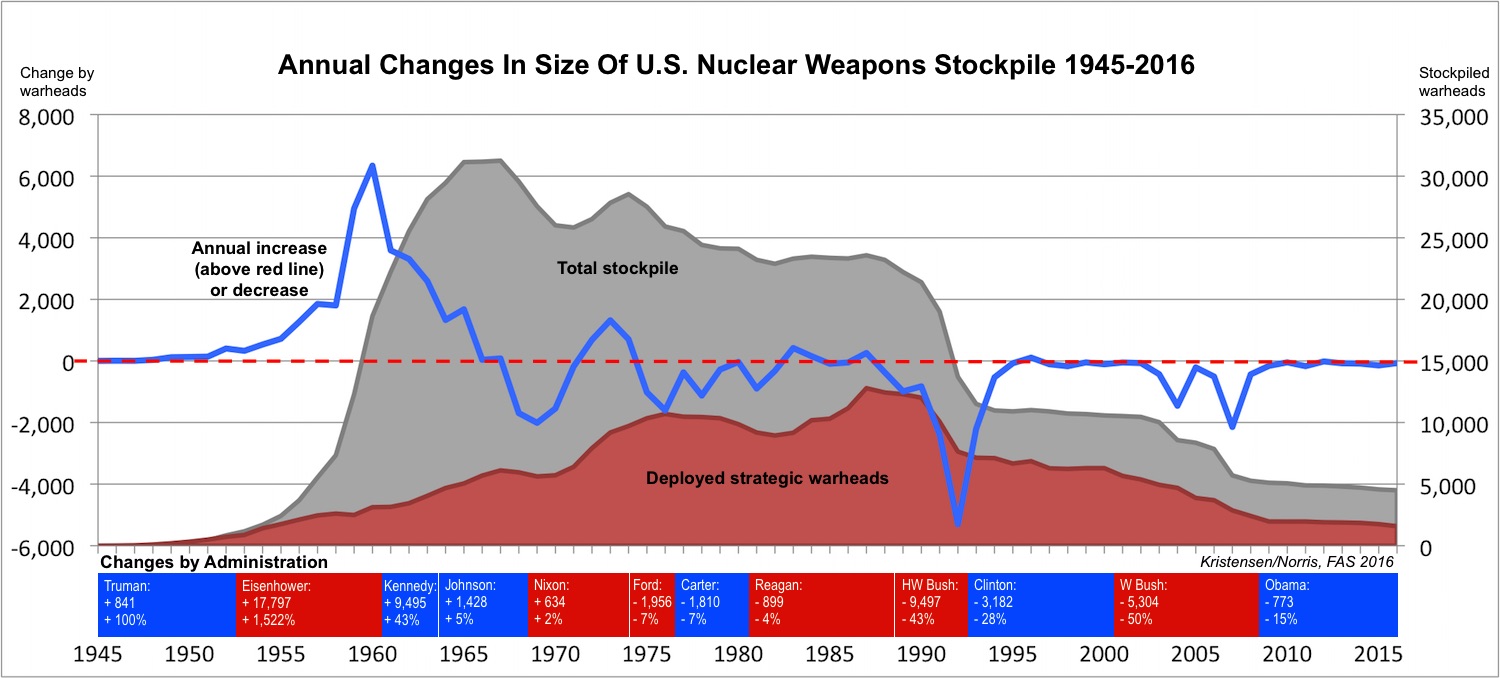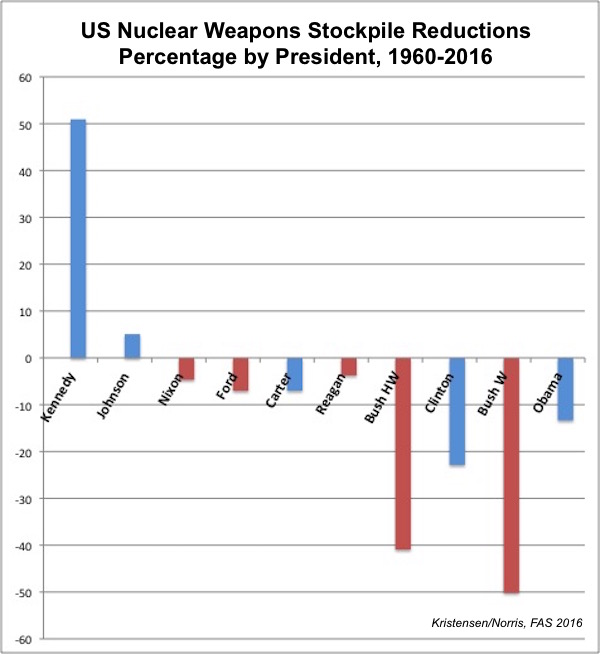Will Trump Be Another Republican Nuclear Weapons Disarmer?
By Hans M. Kristensen
Republicans love nuclear weapons reductions, as long as they’re not proposed by a Democratic president.
That is the lesson from decades of US nuclear weapons and arms control management.
If that trend continues, then we can expect the new Donald Trump administration to reduce the US nuclear weapons arsenal more than the Obama administration did.
What? I know, it sounds strange but the record is very clear: During the post-Cold War era, Republication administrations have – by far – reduced the US nuclear weapons stockpile more than Democratic administrations (see graph below).

Even if we don’t count numbers of weapons (because arsenals have gotten smaller) but only look at by how much the nuclear stockpile was reduced, the history is clear: Republican presidents disarm more than Democrats (see graph below).

It’s somewhat of a mystery. Because Democratic presidents are generally seen to be more likely to propose nuclear weapons reductions. President Obama did so repeatedly. But when Democratic presidents have proposed reductions, the Republican opposition has normally objected forcefully. Yet Republican lawmakers won’t oppose reductions if they are proporsed by a Republican president.
Conversely, Democratic lawmakers will not opposed Republican reductions and nor will they oppose reductions proposed by a Democratic president.
As a result, if the Republicans control both the White House and Congress, as they do now after the 2016 election, the chance of significant reductions of nuclear weapons seems more likely.
Whether Donald Trump will continue the Republication tradition remains to be seen. US-Russian relations are different today than when the Bush administrations did their reductions. But both countries have far more nuclear weapons than they need for national security. And Trump would be strangely out of tune with long-held Republican policy and practice if he does not order a substantial reduction of the US nuclear weapons stockpile.
Perhaps he should use that legacy to try to reach an agreement with Russia to continue to reduce US and Russia nuclear arsenals to the benefit of both countries.
Further reading: Status of World Nuclear Forces
This publication was made possible by a grant from the New Land Foundation and Ploughshares Fund. The statements made and views expressed are solely the responsibility of the author.
The last remaining agreement limiting U.S. and Russian nuclear weapons has now expired. For the first time since 1972, there is no treaty-bound cap on strategic nuclear weapons.
The Pentagon’s new report provides additional context and useful perspectives on events in China that took place over the past year.
Successful NC3 modernization must do more than update hardware and software: it must integrate emerging technologies in ways that enhance resilience, ensure meaningful human control, and preserve strategic stability.
The FY2026 National Defense Authorization Act (NDAA) paints a picture of a Congress that is working to both protect and accelerate nuclear modernization programs while simultaneously lacking trust in the Pentagon and the Department of Energy to execute them.